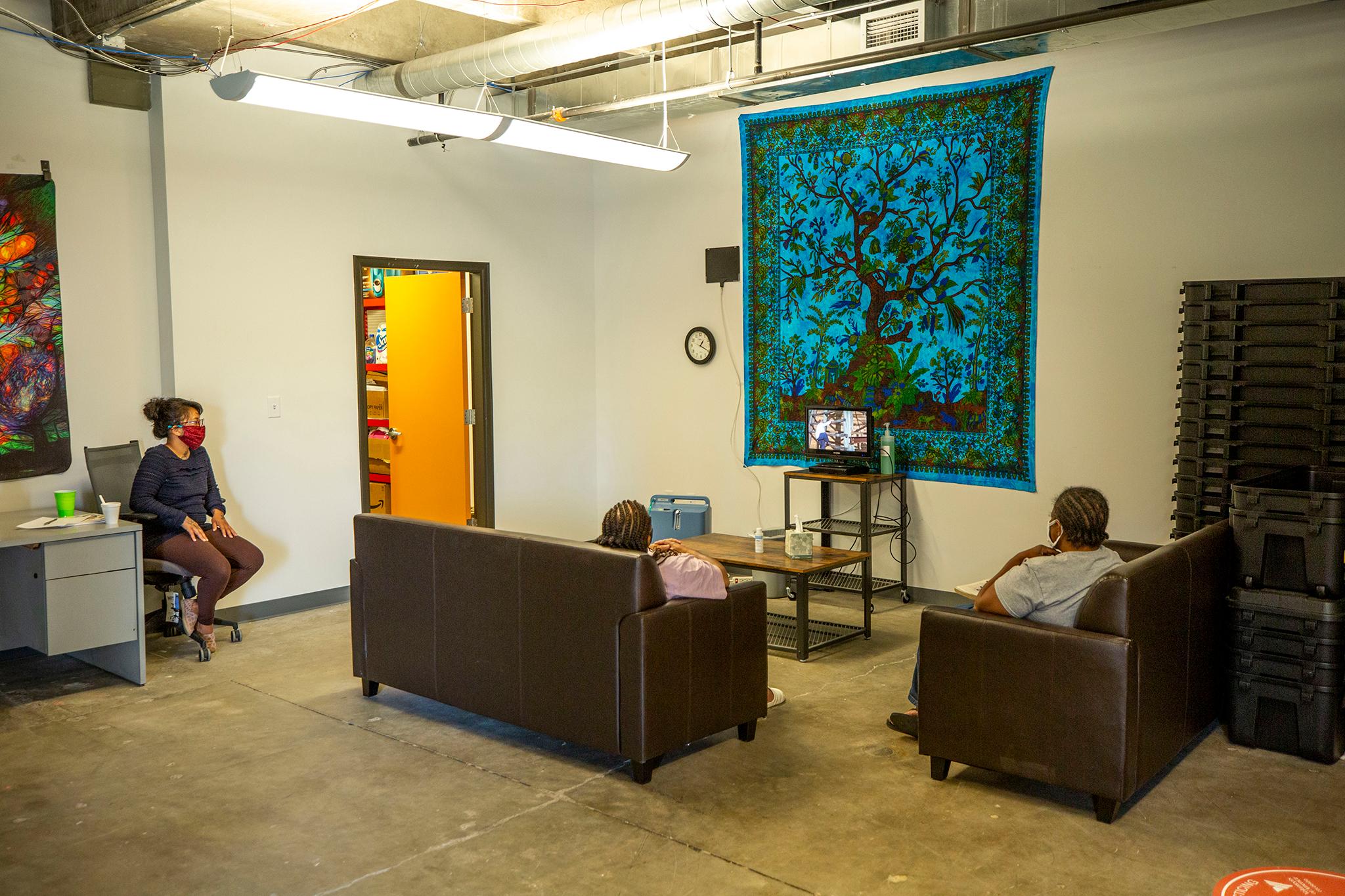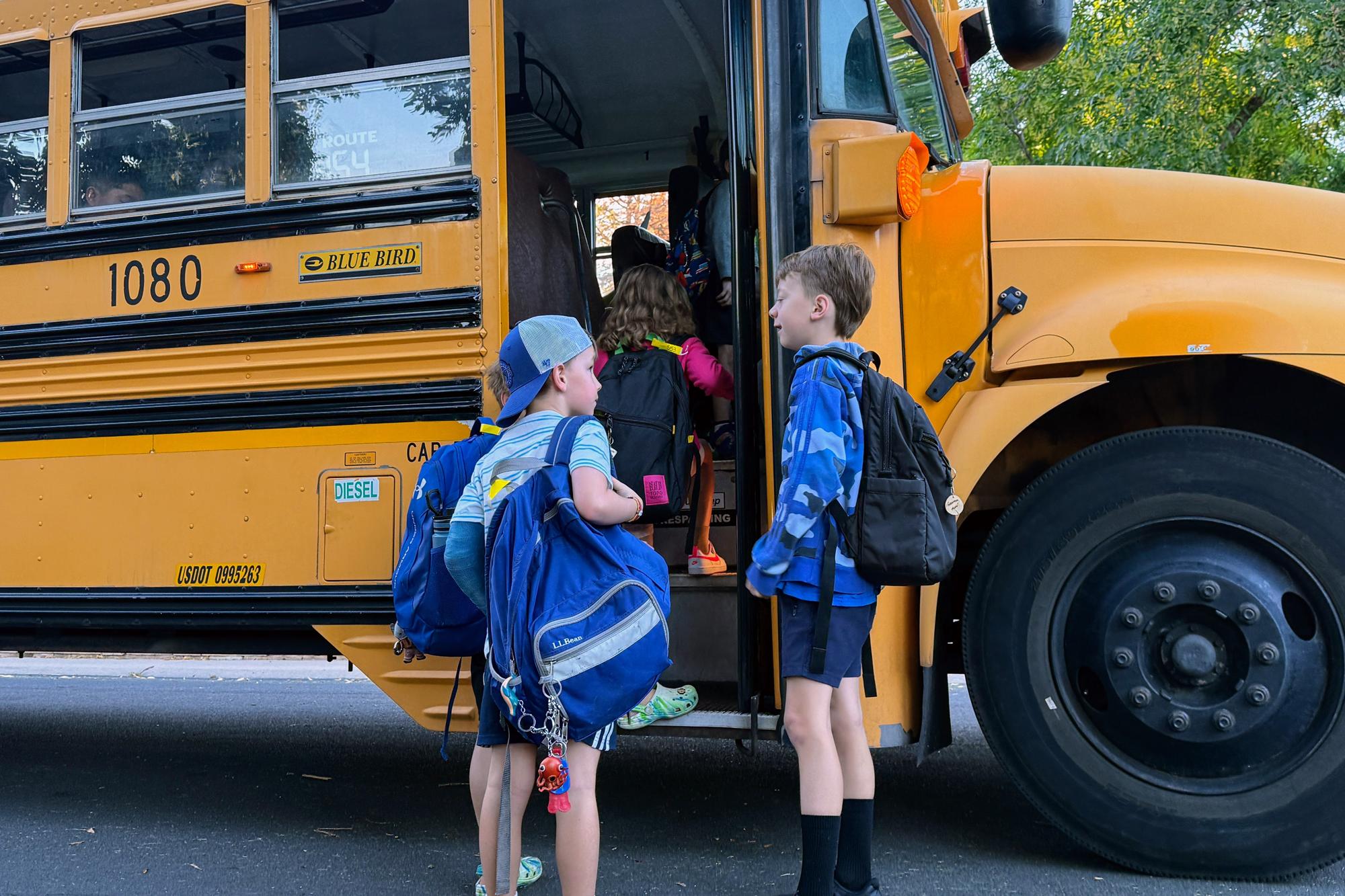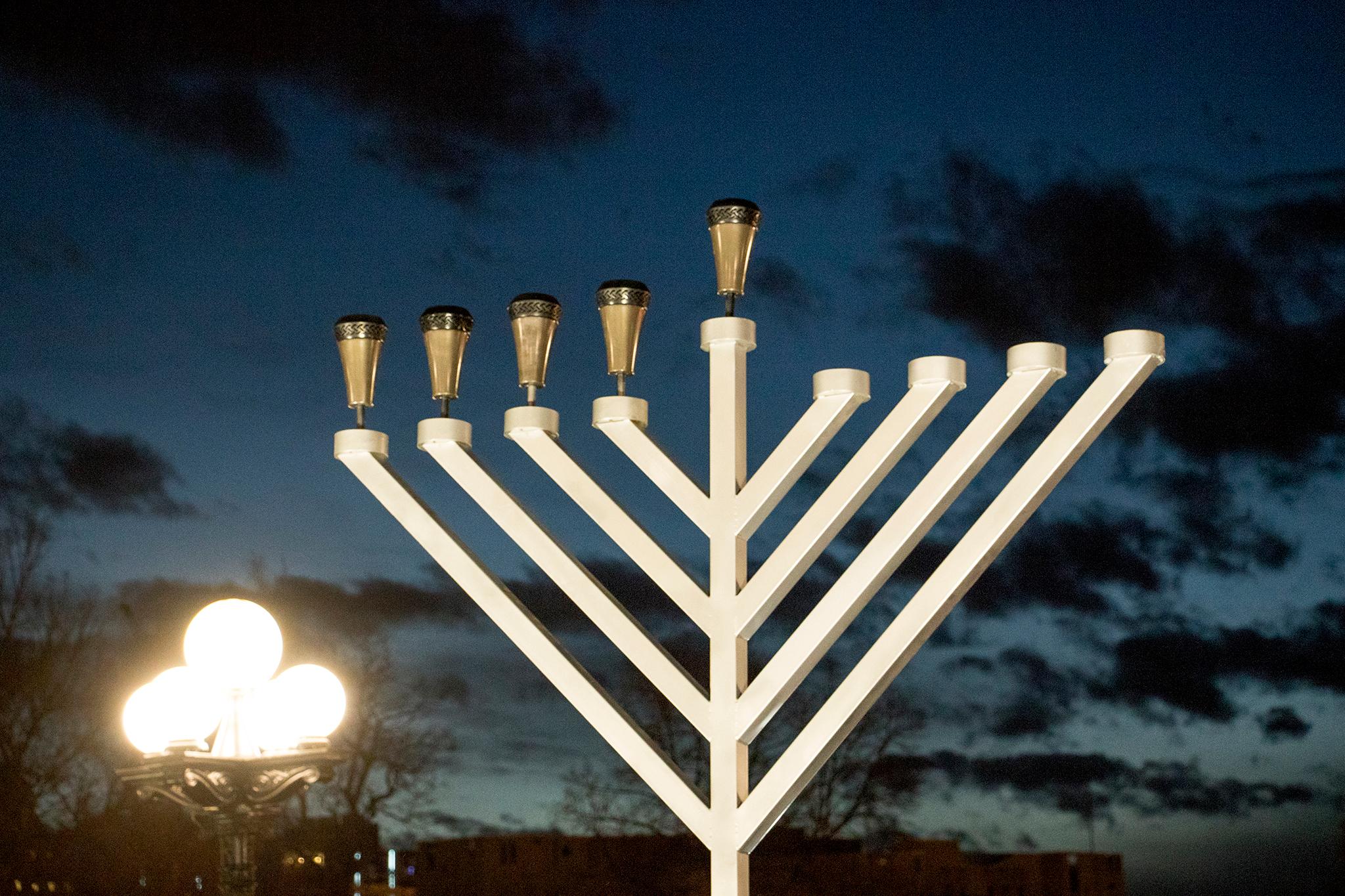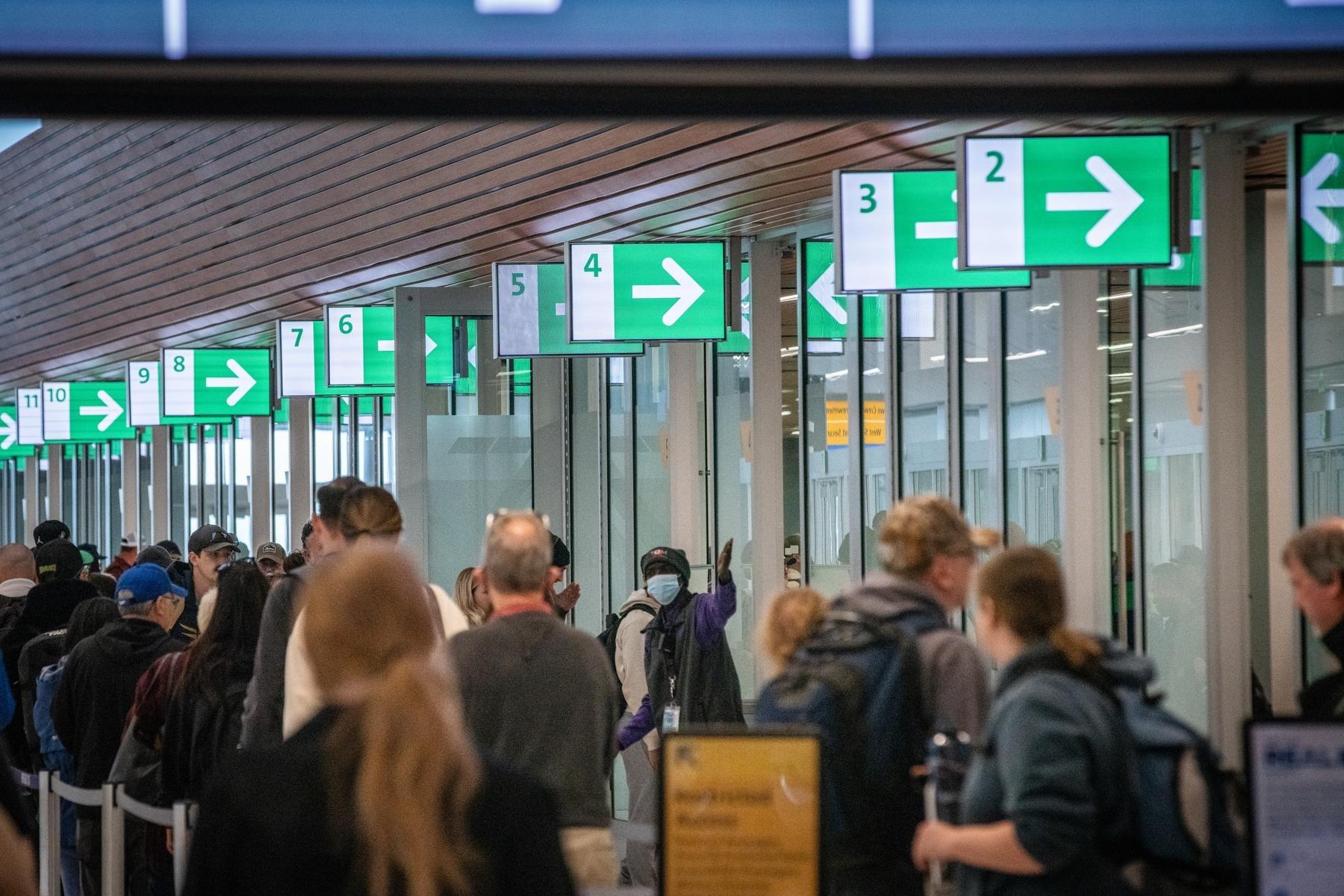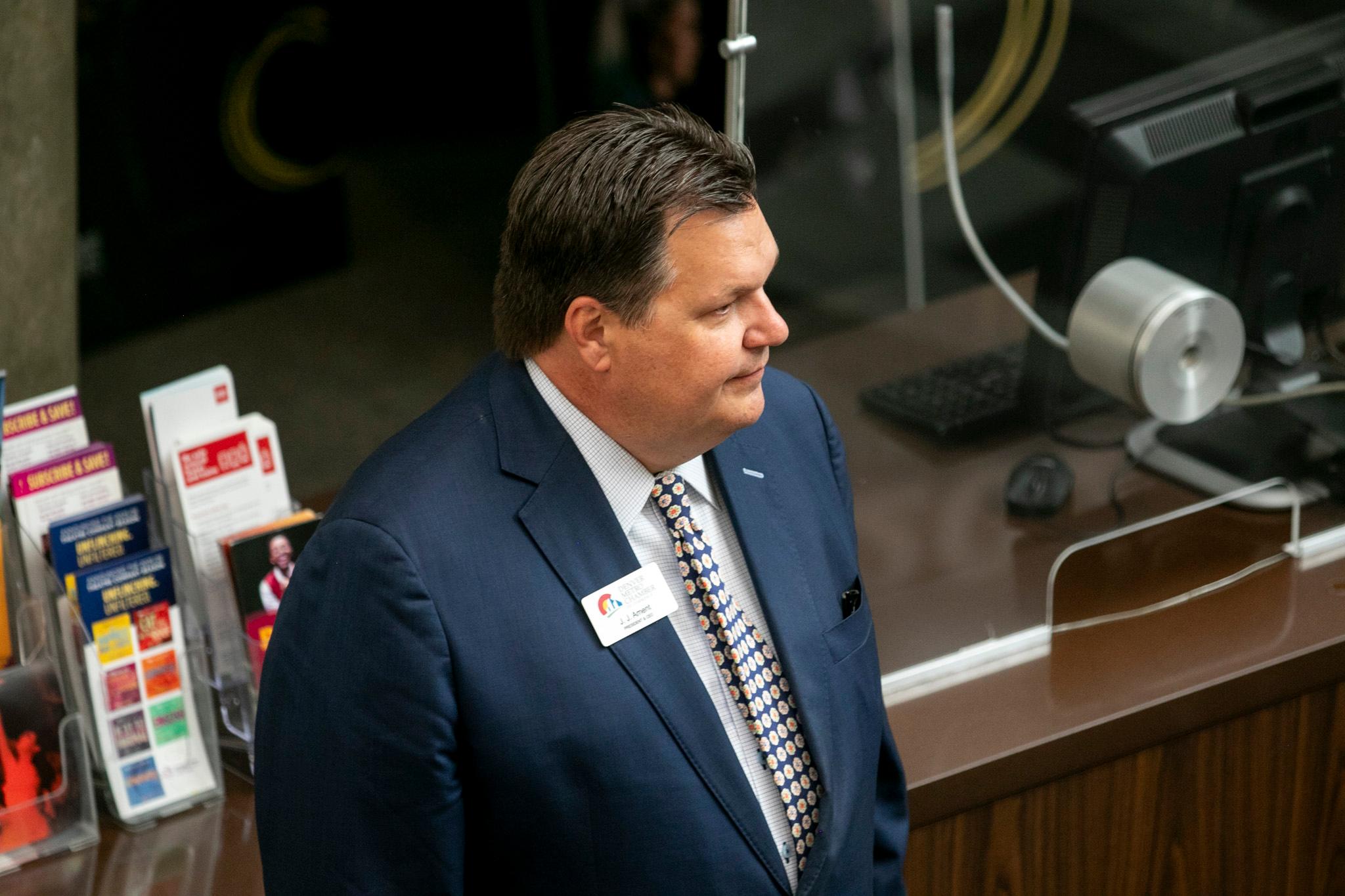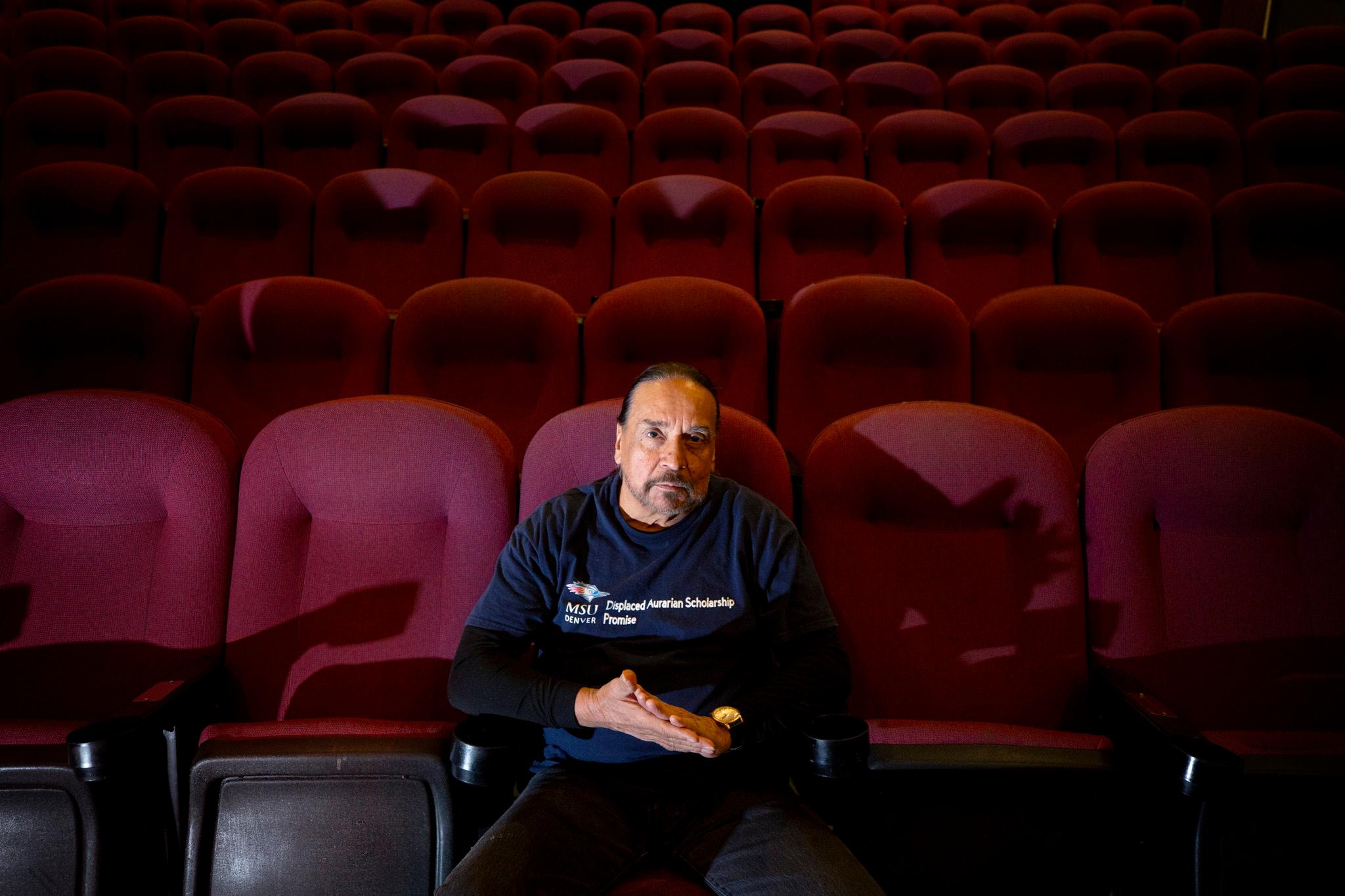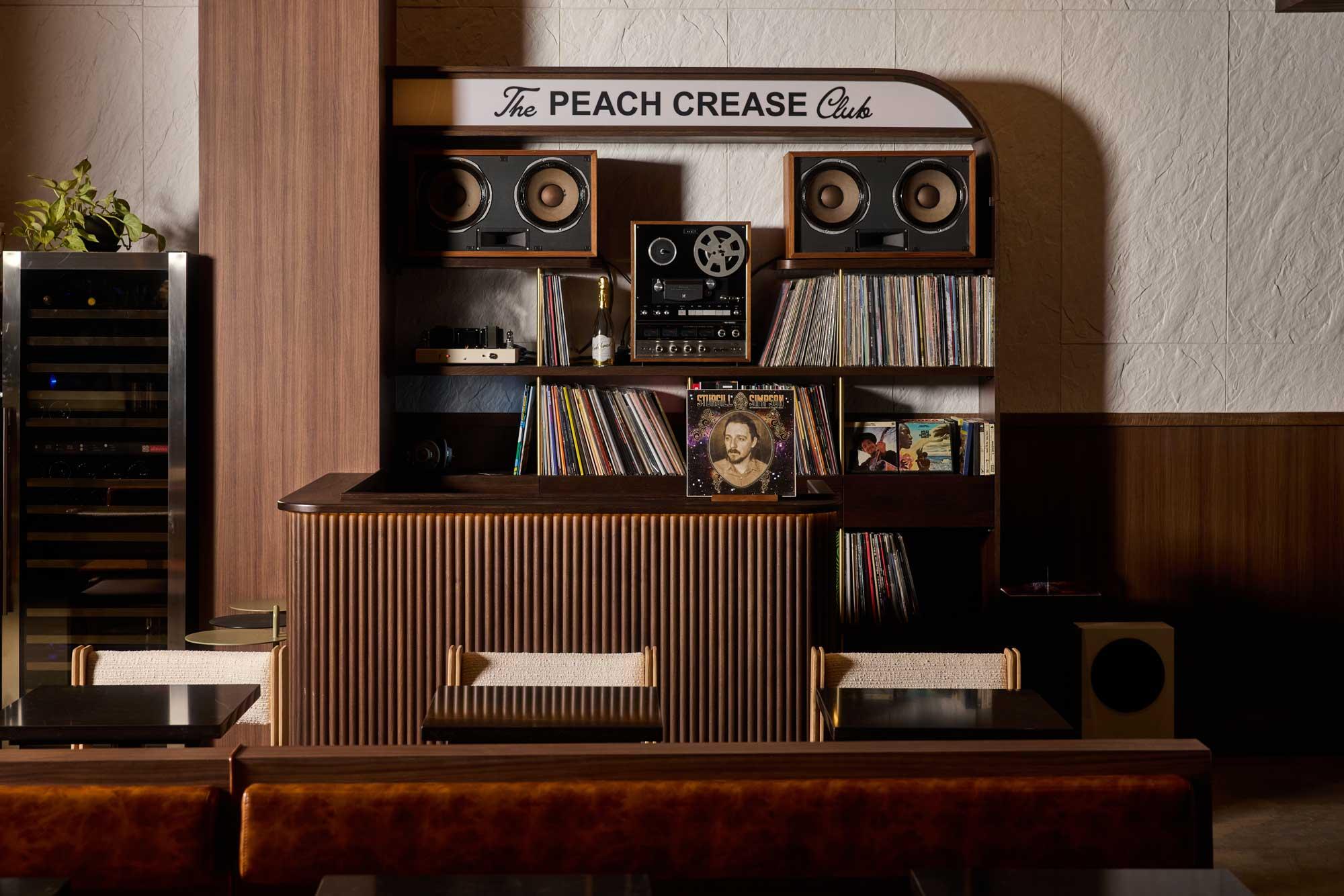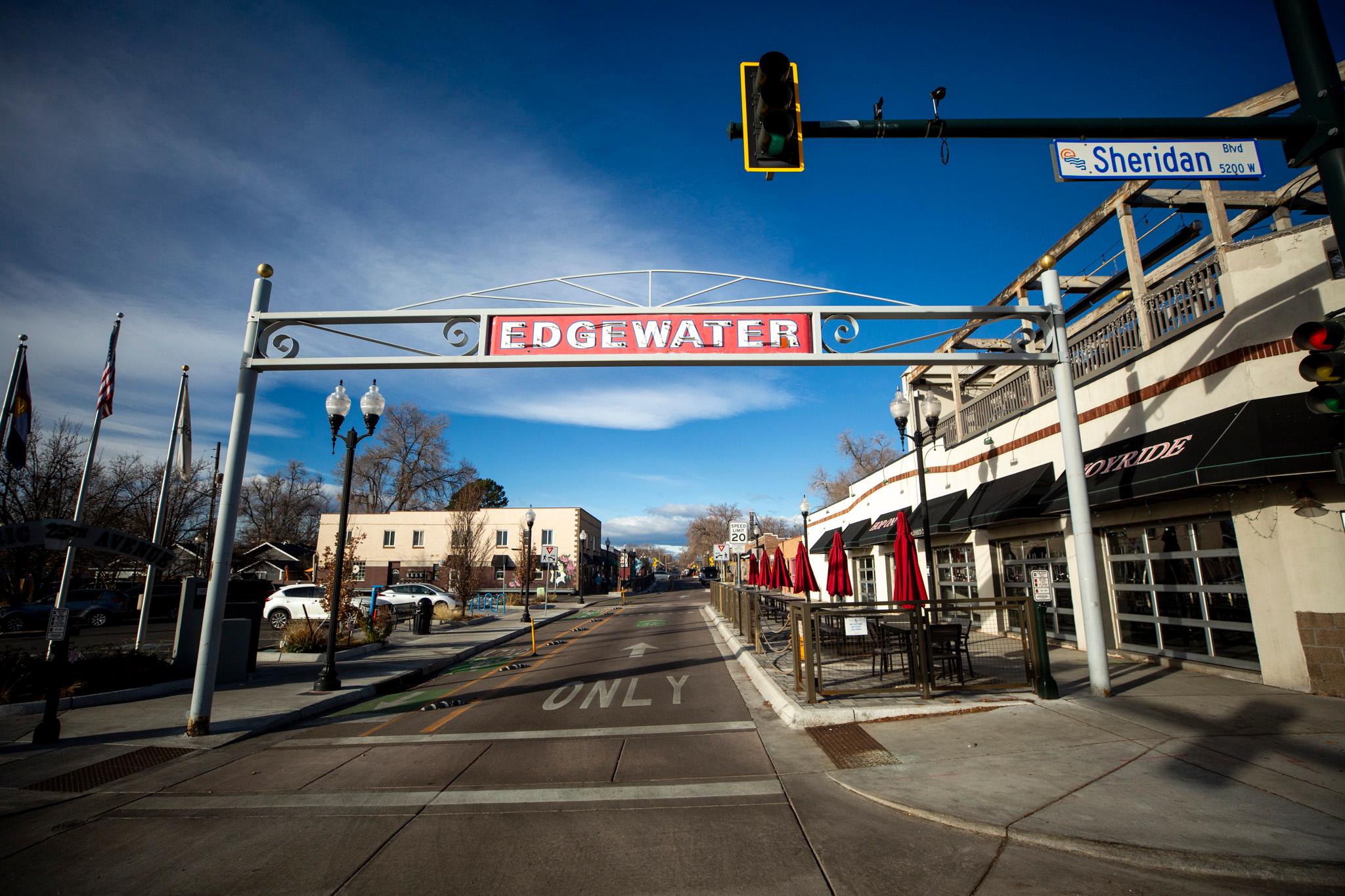The colors are muted at Denver's newest shelter, a 24-hour facility for older women that Volunteers of America has opened on Santa Fe Drive. The walls are painted ocean greens and blues. Forest-themed tapestries soften the concrete floors and exposed ducts of what was once a warehouse.
Temple Gaston, who had been at a temporary shelter for women at the Coliseum until it closed earlier this month, said she can find peace and calm at the facility and be supported as she seeks permanent housing.
"I wasn't getting that over at the Coliseum," Gaston said. "I wasn't able to clearly think."
Gaston's new sanctuary is named after Lindi Sinton, who is Volunteers of America's vice president for program operations and has long pushed to open such a facility. Sinton said a shelter for older women was envisioned during the planning for her organization's Bill Daniels Veteran Services Center, which opened in 2015, at 1247 Santa Fe Drive, to provide consolidated services to veterans facing homelessness and other challenges. Lack of money prevented Sinton's vision from being realized until last year, when Volunteers of America received more than $500,000 from the city to help improve Denver's shelter network.
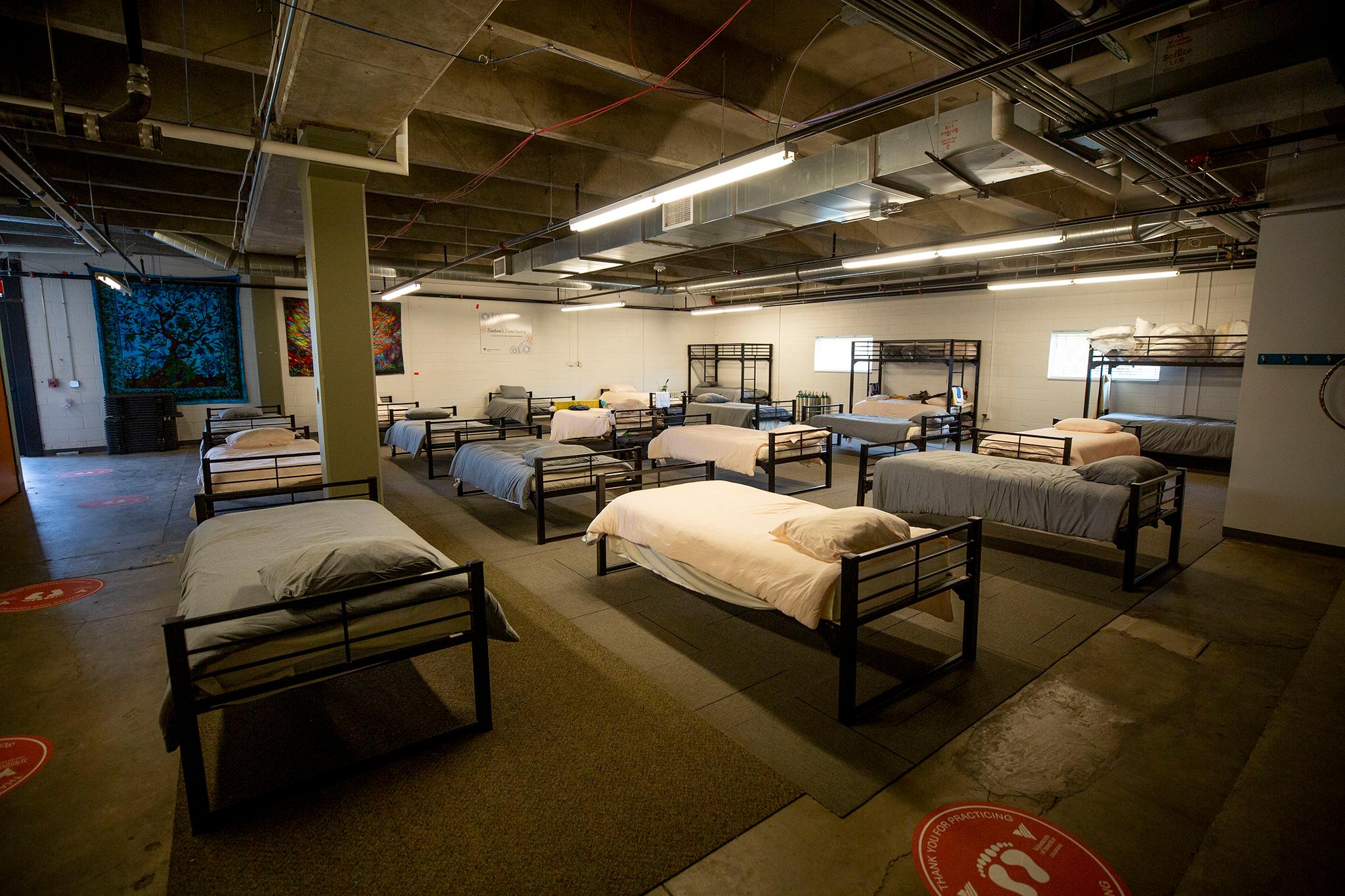
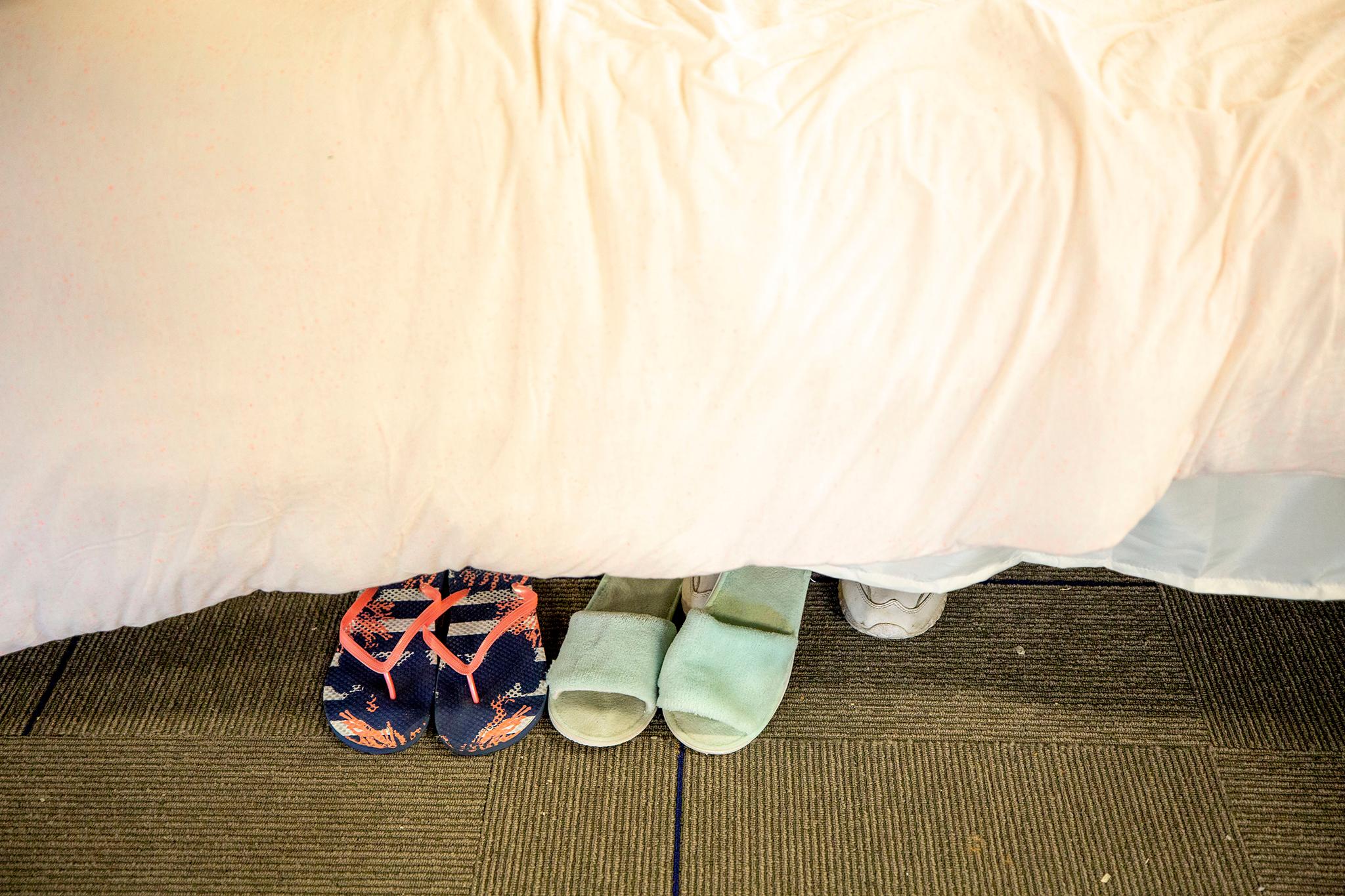
The half-million dollars for Sinton's Sanctuary was part of a total of $5 million in city contracts approved last year aimed at transforming shelters from places that meet emergency needs into engines to end homelessness. A key change in strategy for the city was a 24-hour shelter model, which was accelerated by the pandemic.
The round-the-clock model "has been transformative," Britta Fisher, head of the Denver's housing department, told Denver City Council members earlier this week.
Fisher said people who have stayed at the Coliseum and National Western shelters were less anxious and more able to connect with staff.
Cynthia Miro, associate director of emergency services for Volunteers of America, said many people are traumatized when they arrive at shelters. Having to seek a bed every night adds stress and complicates Volunteer of America's efforts to help.
"I love 24/7 because we get to know the individuals that we're serving," Miro said Friday during a tour of Sinton's Sanctuary.
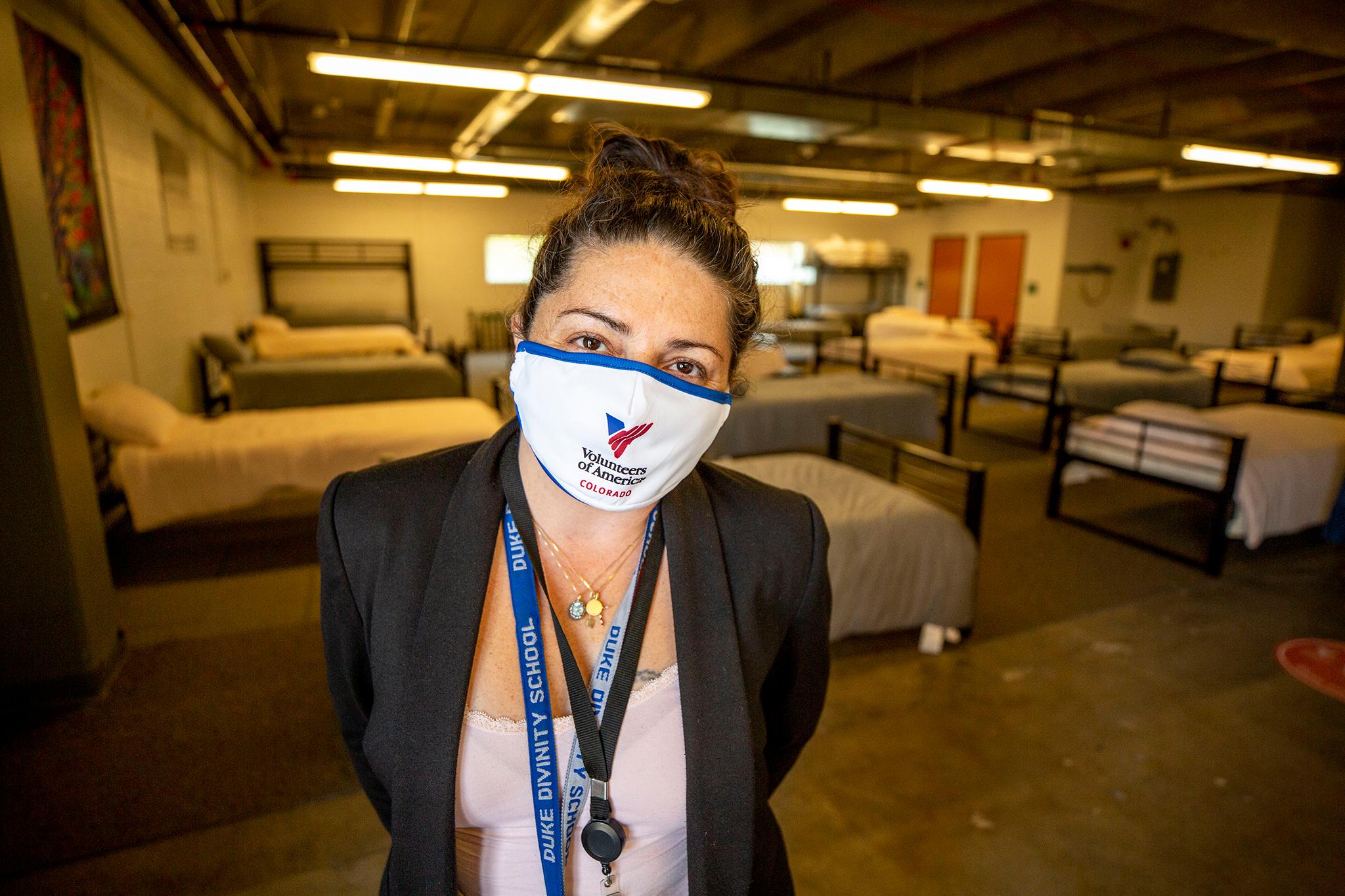
When Gaston was released from jail on June 16, she was directed to the Coliseum. Her husband had died and she had lost her apartment in Aurora during the 235 days she was in jail on a domestic violence charge, she said. The coronavirus added to her concerns.
"Everything that I had, I lost," Gaston said. "I'm going through a lot of physical and mental health issues. It's taken its toll on me. But I do have help here."
Gaston said she has been able to connect with a case manager at Sinton's Sanctuary and has restored a relationship with the Mental Health Center of Denver. While the Coliseum also provided 24-hour respite and support services, Gaston found it too big and impersonal.
"Over at the Coliseum, that wasn't a place for people my age," said Gaston, who is 51.
Miro said women can stay indefinitely at Sinton's Sanctuary, but case managers will check in regularly to ensure they are working toward whatever goals they set.
"The end goal is to get ladies in permanent housing," Miro said.
Sinton's Sanctuary has a staff member assigned to help residents find housing. In a city where the cost of housing has risen much more quickly than incomes, older people who are more likely to be on fixed incomes are particularly vulnerable to housing insecurity.
Sinton's Sanctuary, designed for 28 women and women veterans, has been especially calm in its first weeks. It welcomed its first woman on July 24 and as of Friday had a total of three. Miro said the pandemic has slowed intake because women have to test negative for the coronavirus before they can move in.
The coronavirus slowed renovations, including the construction of new showers. The facility had been scheduled to open in the spring.
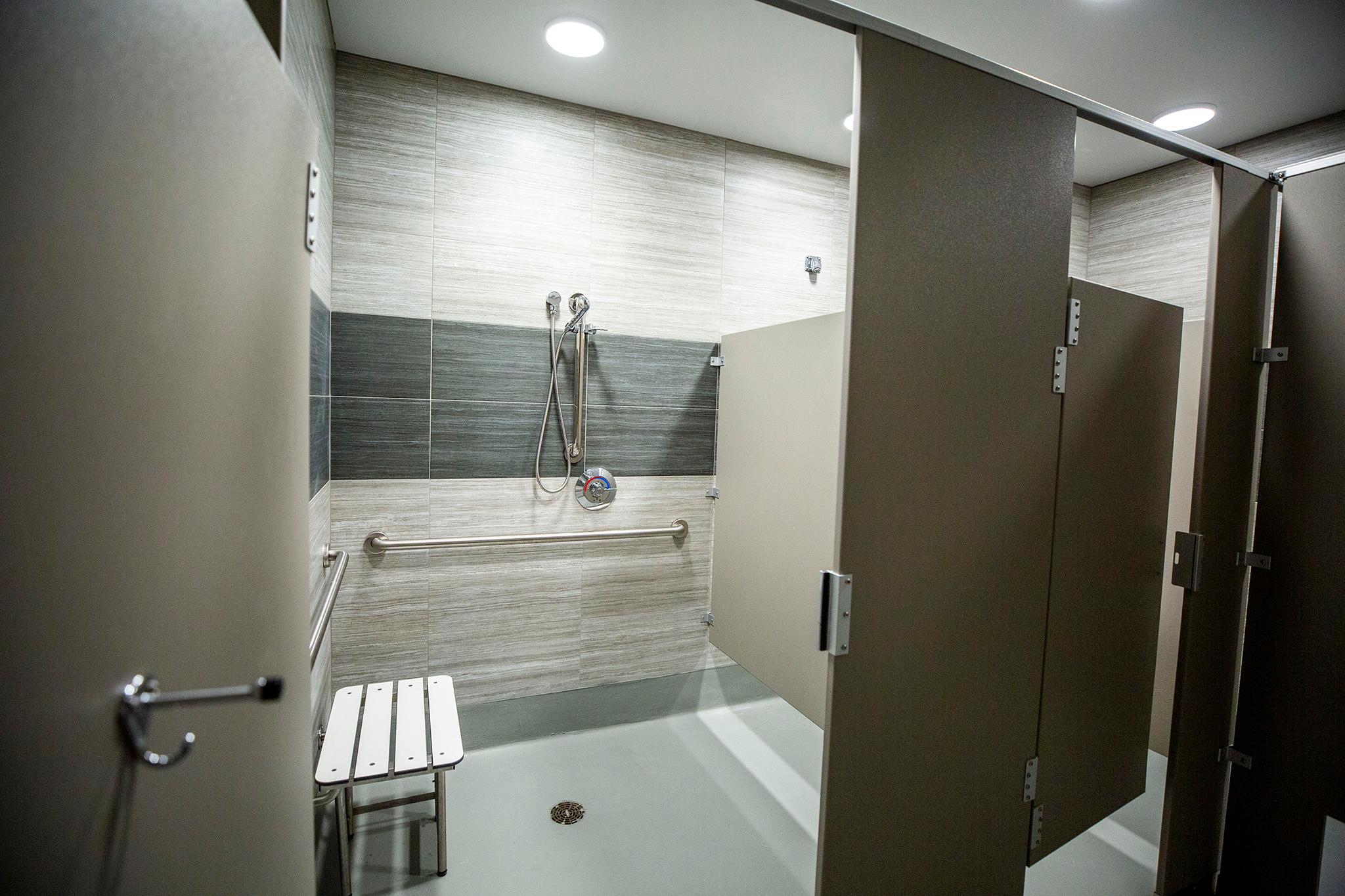
Sinton's Sanctuary was meant to shelters women ages 50 to 64. The need to social distance has meant that Sinton's Sanctuary has 19 beds instead of the 28 it was meant to shelter. The extra beds are in storage for when "we're able to go somewhat back to normal," Miro said. "We'll get there."

